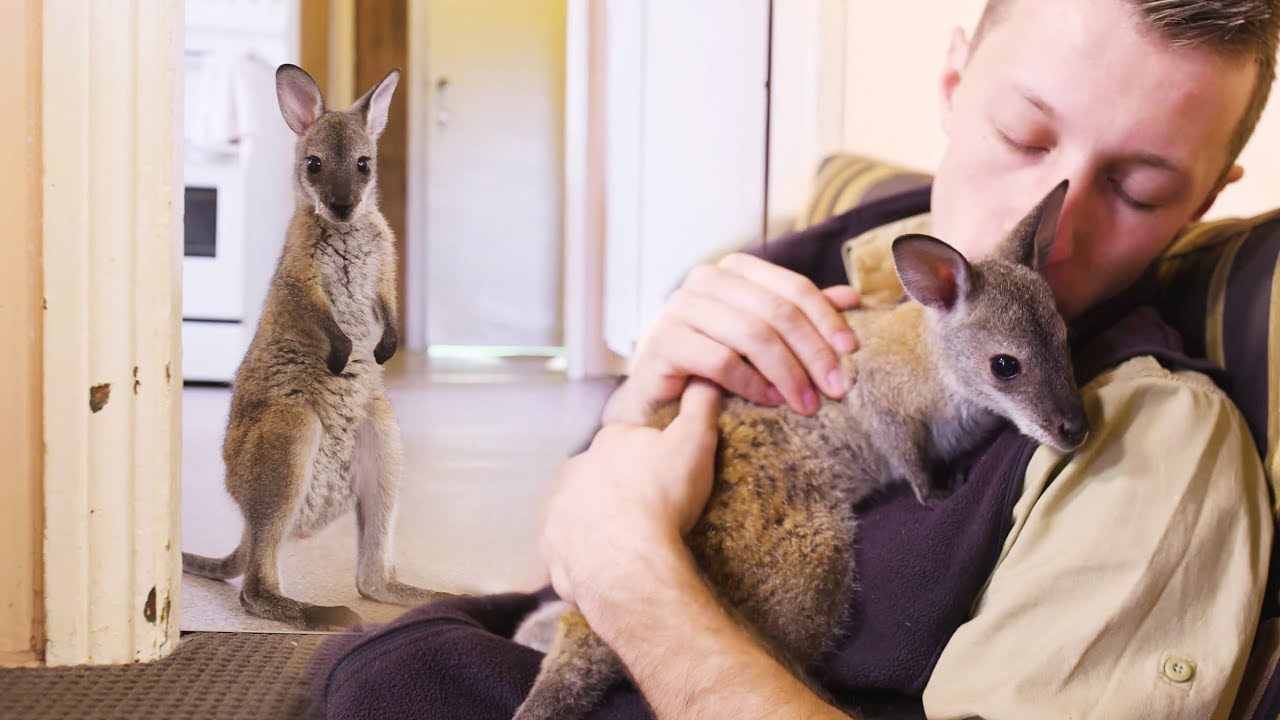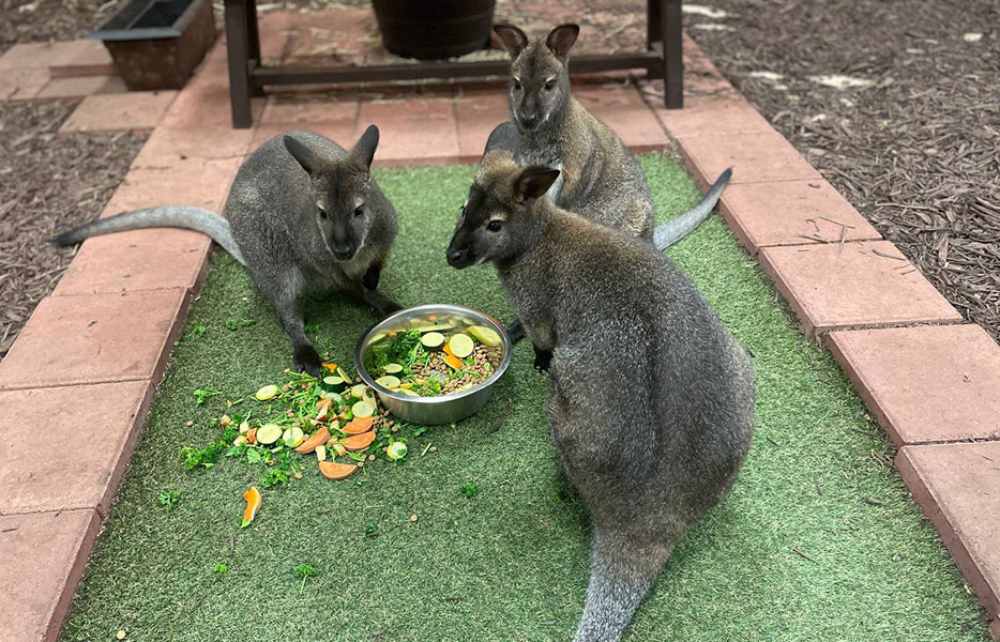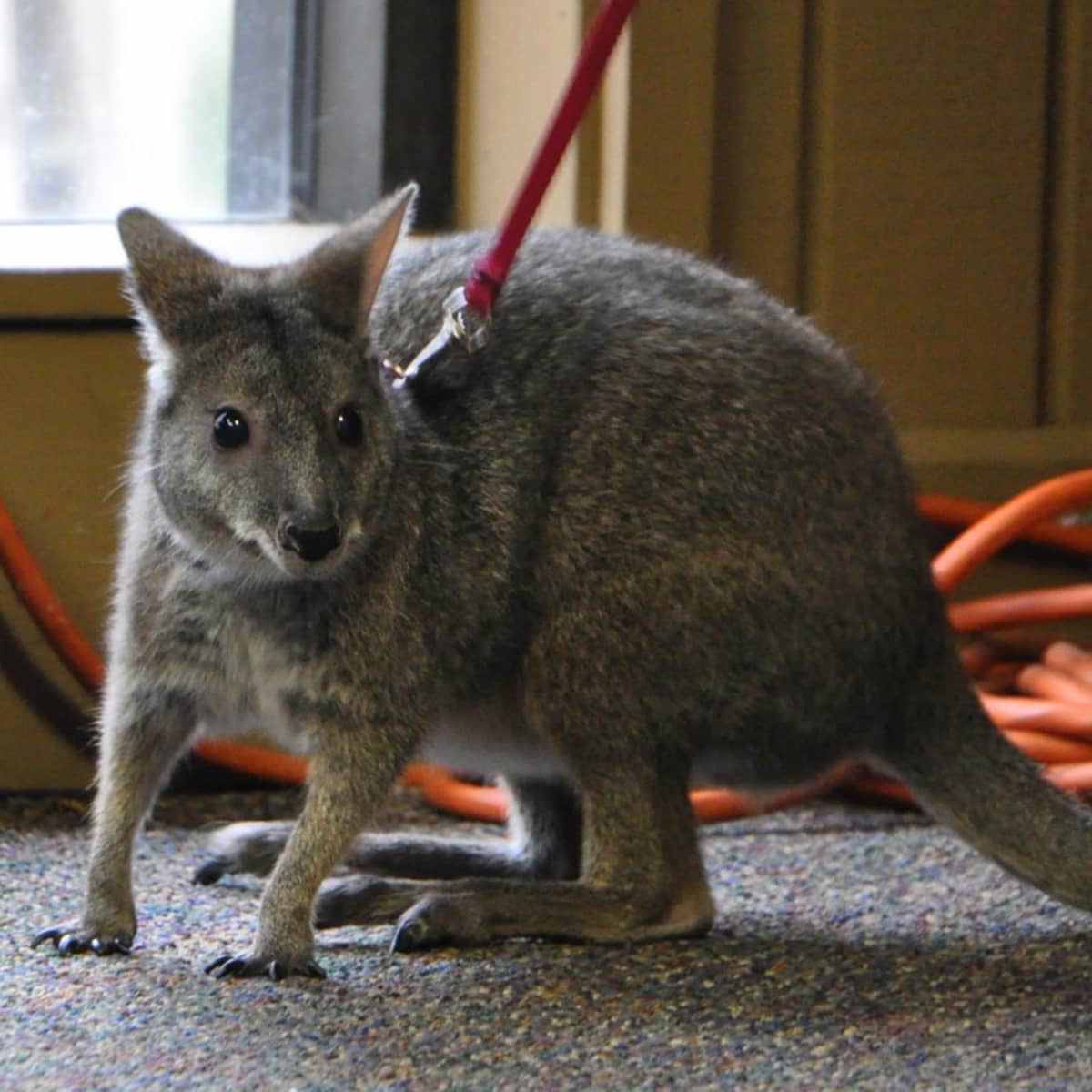
Wallabies as Pets: Legalities and Care Requirements
Wallabies are small to medium-sized marsupials native to Australia and New Guinea and are becoming more popular as exotic pets. Their distinctive appearance, calm temperament, and bouncy walk make them delightful pets. But a wallaby is more complicated than a dog or cat. Such animals have unique care requirements, require large amounts of room and are often regulated in ownership.
Before welcoming a wallaby into your home, it’s essential to hear the legal regulations, care needs and ethical questions. Need a crash course on the ins and outs of owning a wallaby, from care and legalities to potential pitfalls?
Why Wallabies as Pets?

The Appeal of Owning a Wallaby
- Wallabies are charming and visually unique.
- They are intelligent and can bond with their owners.
- They provide a rewarding companionship, unlike traditional pets.
- Their smaller size compared to kangaroos makes them easier to manage.
Still, future owners must remember that wallabies are semi-wild animals and need different care than domestic pets.
Challenges of Keeping a Wallaby
- Specialised Care Needs: They need specific diets, spacious enclosures, and environmental enrichment.
- Legal Restrictions: Many places regulate or ban wallaby ownership.
- Veterinary Care: Finding vets for exotic animals can be challenging.
- Lifespan Commitment: Wallabies can live up to 15 years, demanding long-term dedication.
Legalities of Owning a Wallaby
Is It Legal to Own a Wallaby?
The legality of wallaby ownership differs by country and region. Some areas allow it with permits, while others ban it outright.
Countries and Regions Where Wallabies Are Legal
- United States: Laws vary by state. Some allow ownership with permits, while others do not.
- Australia: Native wildlife laws restrict ownership to licensed individuals or sanctuaries.
- United Kingdom: A Dangerous Wild Animals (DWA) licence is required under the Dangerous Wild Animals Act 1976.
Permits and Licensing
In regions where wallabies are legal, owners may need special permits. Requirements often include:
- Proof of suitable living conditions.
- Experience with exotic animals.
- Regular veterinary checkups.
Consequences of Illegal Ownership
Owning a wallaby without proper authorisation can lead to:
- Heavy fines.
- Confiscation of the animal.
- Legal prosecution.
- Ethical concerns about improper care and conservation risks.
How to Care for a Pet Wallaby
Creating a Suitable Habitat
Wallabies need environments that closely mimic their natural habitats.
Enclosure Requirements
- Size: At least 50 square meters (500+ square feet) per wallaby.
- Fencing: Minimum 6 feet (1.8 meters) high to prevent escapes.
- Shelter: Protection from extreme weather, like insulated sheds.
- Ground Cover: Grass, dirt, and shaded areas for comfort.
Dietary Needs
Wallabies are herbivores, mainly eating grasses, leaves, and plant shoots.
Recommended Diet
- High-quality wallaby pellets (from exotic pet supply stores).
- Fresh grasses, hay, and leafy greens.
- Occasional fruits and root vegetables (like carrots, apples, and sweet potatoes).
- Fresh, clean water at all times.
Avoid processed human foods, as these can cause serious health issues.
Health and Veterinary Care
Finding a skilled exotic animal veterinarian is essential for your wallaby’s health.
Common Health Issues
- Nutritional Deficiencies: Ensure a balanced diet to avoid bone disorders.
- Parasites: Regular deworming and parasite control are necessary.
- Dental Problems: Routine checks help prevent infections and overgrown teeth.
Additional Expert Tips & Common Mistakes to Avoid

Best Practices for Wallaby Care
- Allow Socialization: Wallabies thrive on companionship from other wallabies or humans.
- Enrichment Activities: Provide space for hopping, climbing logs, and toys to keep them engaged.
- Routine Veterinary Checkups: Regular health assessments prevent long-term issues.
Common Mistakes & How to Avoid Them
- Underestimating Space Needs: They require large, secure enclosures.
- Ignoring Socialization: Without interaction, wallabies can become skittish or aggressive.
- Feeding an Improper Diet: Human snacks and pet foods can harm their digestion.
- Overlooking Legal Requirements: Always check local laws before getting a wallaby.
Advanced Insights & Ethical Considerations
Understanding Wallaby Behavior
- Hopping & Jumping: Wallabies are active and need space to move freely.
- Marking Territory: Males may show dominance by marking their environment.
- Nocturnal Activity: They are most active at dusk and dawn.
Ethical Considerations
- Conservation Impact: Removing wallabies from their habitats can harm ecosystems.
- Responsible Breeding: Buy only from ethical breeders who prioritise animal welfare.
- Long-Term Commitment: Owning a wallaby is a 10-15 year responsibility.
Thinking of Adopting One: Take First Steps

Owning a wallaby can be rewarding but also demanding. Their unique charm appeals to many, yet they need specialised care, legal compliance, and long-term commitment. If you’re considering a wallaby, research thoroughly, consult experts, and ensure you can provide a healthy, ethical, and legal environment for your new pet.
So, you want to adopt a wallaby? It is essential to be aware of their needs and care to live a safe and balanced life with these fascinating creatures.
Potential owners should consider if a wallaby suits their way of life. If the challenges seem too overwhelming, there are still ways to appreciate these animals. You can also do more wildlife sanctuaries or support more conservation efforts. Choosing wisely and ethically is suitable for both the owner and these extraordinary marsupials.


